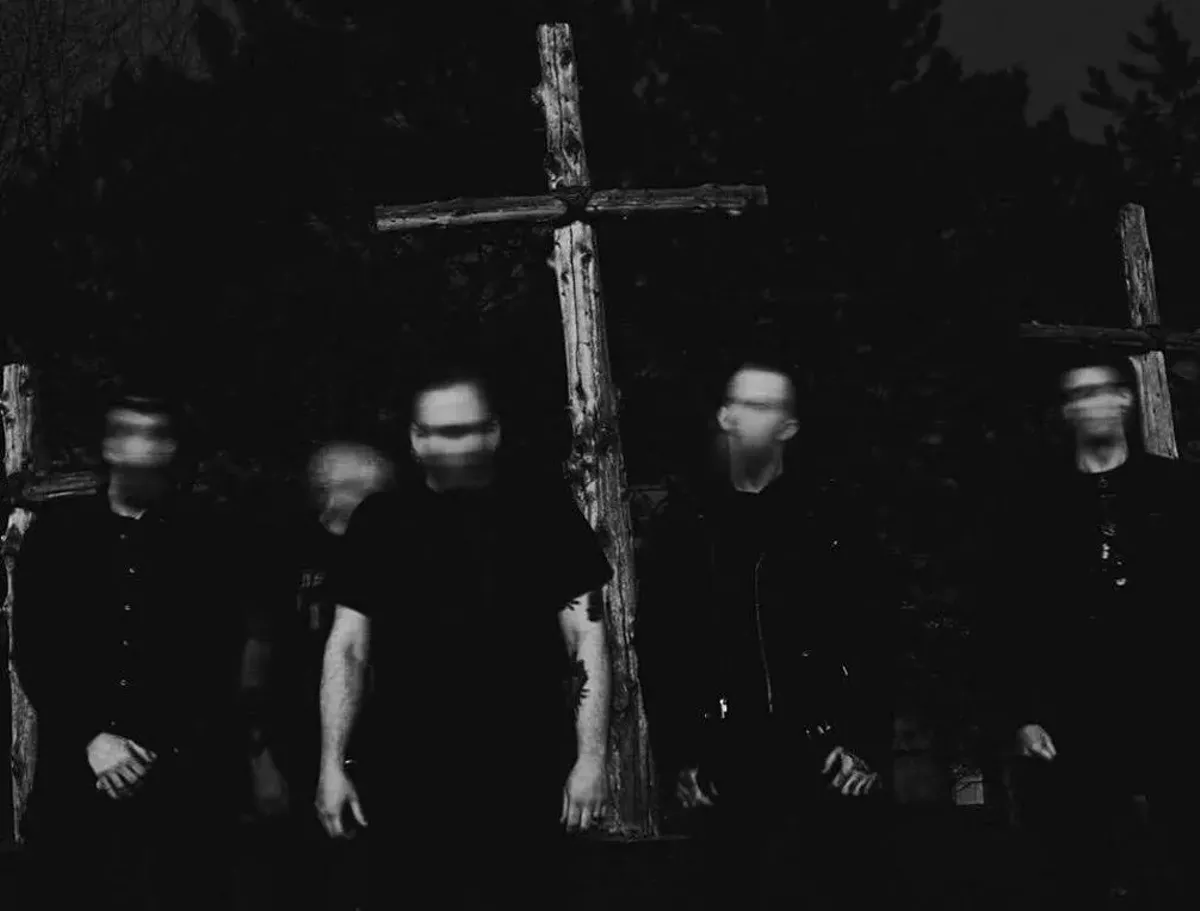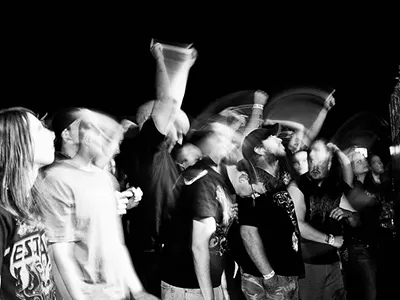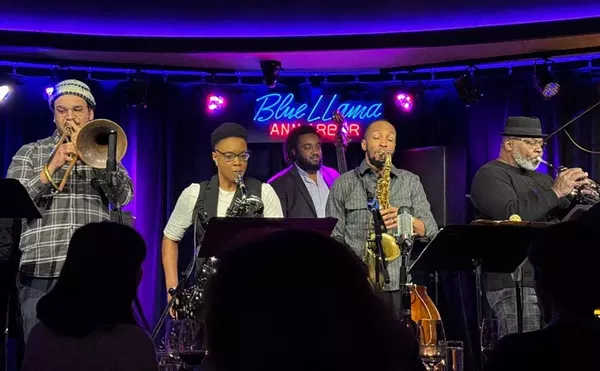Mixing the best parts of grindcore, black metal, and even some metalcore, Detroit's Sunlight's Bane is less interested in subgenre parameters than running listeners over with what they call "audio terror."
Founded in 2010 as Traitor, the band spent a couple of years figuring out its sound, playing locally and booking a few mini-tours before changing the name to Sunlight's Bane in 2015. Vocalist Nick Holland says the group started as "a collection of friends and familiar faces doing the only thing we're good at."
After a few EPs and split releases, their debut full-length album, The Blackest Volume (Like All Earth Was Buried), was released in February on Philadelphia-based Innerstrength Records and quickly won well-deserved praise from prominent metal websites and blogs, like MetalSucks, Metal Injection, No Clean Singing, and Invisible Oranges.
Tours in support of the album included a very successful UK-run with friends Geist in the fall, and the band continues to be a mainstay in the local underground metal and D.I.Y. scenes.
On Saturday, Sunlight's Bane plays the Crofoot's Pike Room in Pontiac, in support of long-running, California death metallers Exhumed. We talked with Holland about the experimental techniques used to record the band's excellent debut LP, the Old Testament wrath of his lyrical style, and his thoughts on the far right's place in extreme metal.
Metro Times: There's a note on the band's Facebook page about how aggressive music has lost its aggression. Can you expand on that? Why is it important that this music be "truly" aggressive, and what does that mean to you?
Nick Holland: While the cliché expectation of aggression is typically violence or force, the band thinks of it more as a perception and solely an emotion. We feel that to write music that encapsulates a sound, like heavier music does, seems disingenuous when there is no element of human emotion or anger. It feels hollow to polish and perfectly shape what, ultimately, should sound like the audio capture of pure rage, adrenaline and aggression, not an extension of theory and calculation.
MT: Your debut full-length album, The Blackest Volume ..., released earlier this year, received really positive responses from fans and the press. What has that meant to the band, and how did it compare with your expectations for the album?
Holland: We went into recording this album with no idea of what to expect upon release. To have almost immediately received international recognition and praise in numerous publications far exceeded our humble goals of simply recording a bleak record to, perhaps, even release by ourselves if we had not been able to secure distribution.
MT: Was there an overarching theme or concept behind the album — even just in terms of musical ideas — or was it more a document of what you happened to be writing in the moment?
Holland: With the exception of two songs, the album was written over the course or two years, [with] songs being written and, ultimately, scrapped if we felt it did meet the expectations we had for ourselves and the material as a whole. We didn't go in with any lyrical theme or concept or connection between the individual songs. We simply wanted to write a bleak and abrasive record that was the audio equivalent to fear or suffering, regardless of whatever the music itself sounded like. Which is why we have dubbed the band's sound as "audio terror."
MT: Your lyrics kind of read like scriptures, or maybe really bleak psalms, or at least an older kind of verse. How did you develop this style and what influenced it?
Holland: My lyrics have always been highly influenced by both biblical and theological scripture and prose and contemporary poetry. Having grown up reading the likes of H.P. Lovecraft and Poe also has a significant influence on the way I write, which is a very specific approach for Sunlight's Bane. "Psalms" is actually a pretty accurate description for what I try to have them come across.
MT: Where was the album recorded and what were the sessions like?
Holland: We recorded with Andy Nelson at Bricktop Recording in Chicago. Andy has always been an engineer willing to work with bands in whatever capacity they see fit, and we knew he would allow us to be extremely experimental. A significant portion of the guitar tracks were recorded by candlelight, and I recorded my vocals in an unlit, unheated room in the middle of December. We tried very hard to record in a setting that would aid and influence the sound of our performances, as well as recording techniques, like having my vocals run through a guitar amp and putting mics up against the speakers.
MT: How did you connect with Inner Strength Records, and what has the label helped you accomplish you couldn't on your own?
Holland: The label and I came into contact online. What was most important to us was that they were willing to let us creatively helm our album's public relations campaign, advertisements, and interviews. There was a PR company, but they gave us the final say on any and all creative representation, which was very important to us and something we could not have done on our own.
MT: Matt Harvey of Exhumed, who you're opening for Saturday, wrote an opinion piece over the summer basically saying that censoring fascist and Nazi metal bands was a bad idea, because metal has been and should be a safe place for extreme views. He justified this view by saying selling these bands' records — whether a distro believes in their message or not — help keep them afloat and continue distributing music by artists with all kinds of politics. Did you see the piece, and if so, what were your thoughts on it?
Holland: I did not, and while I disagree entirely, I save my far leftist — sometimes extremist — political views for the stage, where I can also represent the rest of the band as well in a manner they see fit, not in an interview where I may say things in a way that could only suit my own political ideals.
MT: You toured the UK in September. Was that your first trip abroad as a band? What was that experience like, and what did you see or learn that was different from touring in the United States?
Holland: The UK was our first off-continent tour. The experience was nearly indescribable when compared to touring the U.S. Headlining sold-out shows with our friends in Geist and playing to the crowds we played to has almost embittered us. Touring abroad is now the only way we would like to tour when compared to all the U.S. tours we have done over the years, as great as they have mostly been.
Sunlight's Bane opens for Exhumed, Saturday, Dec. 2, at the Pike Room, 1 S. Saginaw St., Pontiac; doors open at 7 p.m.; with Arkaik and Squalid; tickets are $15-$17; all ages welcome.







